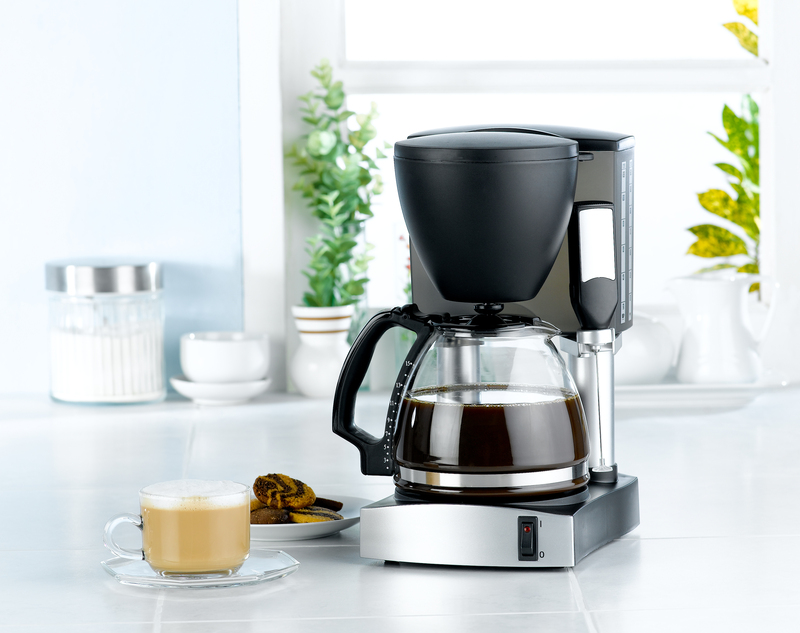Tackle Persistent Pet Odors in Your Home Effectively
Posted on 10/10/2025
Is your home plagued by lingering pet odors? Many people who share their space with dogs, cats, or other animals struggle to keep their homes smelling fresh. While our furry friends bring joy and companionship, they can also leave behind stubborn scents in carpets, furniture, and even walls. If you want to eliminate persistent pet odors from your home effectively, this comprehensive guide will help you reclaim fresh, inviting air for you and your family.
Understanding the Causes of Stubborn Pet Odors
Before you can remove pet odors efficiently, it's essential to understand why they linger. Pet smells come from organic compounds, such as dander, oil, saliva, urine, and feces. Some common sources of pet odors include:
- Urine stains on carpets and flooring
- Pet bedding harboring body oils and saliva
- Litter boxes and cages
- Pet hair and dander on furniture and in air ducts
- Scratched surfaces where bacteria thrive
Addressing these root causes head-on is the first step toward a truly odor-free home.

Immediate Steps to Neutralize Pet Odors
1. Act Quickly on Accidents
Pet accidents can happen, whether you have a new puppy or an elderly cat. The key to preventing lasting smells is to clean spills and messes immediately:
- Blot up any liquid with paper towels--never rub, as this spreads the stain.
- Apply an *enzyme-based cleaner* specifically designed for pet accidents. These break down organic materials that cause odors.
- Avoid ammonia-based products, as these can imitate urine scent and encourage repeat accidents.
This prompt attention is crucial in your effort to tackle persistent pet odor in carpets and floors.
2. Replace or Wash Pet Bedding Frequently
Bedding and soft toys can harbor bacteria and scent. To fight stubborn pet odors at the source:
- Wash bedding and soft toys weekly using hot water and pet-safe detergent.
- If smells linger, add half a cup of white vinegar to the rinse cycle for extra odor-fighting power.
- For items beyond saving, replace them regularly to maintain a fresh environment.
3. Freshen the Air
While cleaning surfaces is critical, don't forget the air:
- Open windows daily to allow fresh air to circulate.
- Consider air purifiers with HEPA and activated carbon filters to eliminate airborne pet odors and dander.
- Regularly replace HVAC filters to prevent odor buildup in the ducts.
Deep Cleaning Strategies for Stubborn Pet Smells
Carpet and Upholstery Cleaning
Fabrics absorb pet odors more than any other material. To remove persistent pet odor from carpets and couches:
- Vacuum furniture and carpets thoroughly, using a vacuum with a HEPA filter for dander removal.
- Sprinkle baking soda over carpets and let it sit for several hours before vacuuming. Baking soda neutralizes odors naturally.
- Use a carpet shampooer or rent a steam cleaner, using an enzyme-based cleaning solution for the deepest clean.
- If the odor persists, consult a professional cleaning service specializing in pet odor removal.
Hard Floor Cleaning
Hardwoods, tile, and linoleum can still harbor pet scents, especially in cracks and seams. To eliminate pet odors from hard floors:
- Sweep and mop with a pet-safe floor cleaner.
- For urine stains, apply an enzyme cleaner and rinse well.
- Seal porous surfaces to prevent future absorption.
If necessary, consider refinishing hardwoods affected by deep, set-in odors.
Walls and Baseboards
Pets sometimes spray or brush against walls, leaving behind a stubborn smell. To tackle pet odors embedded in walls:
- Wash surfaces with a mild detergent and warm water.
- If odors persist, try a vinegar solution (1:1 with water) for natural deodorizing power.
- For painted walls, avoid harsh chemicals that may damage the finish.
Routine Maintenance To Prevent Pet Odors
Regular Grooming and Bathing
Your pet's hygiene directly impacts your home's scent. Routine grooming reduces shedding, dander, and oily buildup. Follow these essential tips:
- Brush your pet regularly to remove loose hair and debris.
- Bathe your dog or cat with a pet-appropriate shampoo every 1-2 months, or as needed based on breed and activity.
- Wipe paws after walks to prevent dirt and outdoor smells from entering your home.
Litter Box, Cage, and Pet Area Maintenance
If you have a cat, rabbit, or other small pet, their designated areas can be a major source of stubborn odors. Here's how to keep pet odors at bay in these areas:
- Scoop litter boxes daily and replace litter weekly.
- Clean cages and aquariums thoroughly, following manufacturer recommendations.
- Use baking soda or specialized litter deodorizers (pet-safe) to keep things fresh.
- Place litter boxes in well-ventilated areas to reduce odor concentration.
Vacuuming and Dusting
Pet hair and dander accumulate quickly. To prevent buildup and odors:
- Vacuum floors, rugs, and furniture at least twice a week.
- Dust baseboards, shelves, and corners--pet hair gravitates to these areas!
- Consider robotic vacuums with pet hair functionality for daily upkeep.
Natural Solutions to Combat Persistent Pet Odors
If you prefer to avoid harsh chemicals, there are several natural remedies to get rid of pet odors in your home:
- Baking soda: Sprinkles on carpets and left overnight absorb odors before vacuuming.
- White vinegar: Mix equal parts with water in a spray bottle for spot cleaning and deodorizing.
- Lemon juice: Diluted with water, this acts as a natural disinfectant and leaves a pleasant scent.
- Activated charcoal: Place bowls of it around the home to passively absorb unwanted smells.
- Houseplants: NASA studies show that some houseplants, such as peace lilies and spider plants, help improve indoor air quality by filtering toxins and odors.
Commercial Products for Effective Odor Removal
Sometimes natural remedies aren't enough. A wide range of pet odor eliminators for homes is available, each serving specific needs:
- Enzyme Cleaners: These break down organic matter at a molecular level, removing the cause rather than just masking the scent.
- Odor-eliminating Sprays: Choose those labeled safe for pets and fabrics, designed for continuous odor control.
- Air Purifiers: Models with HEPA and carbon filters trap allergens and neutralize airborne contaminants.
- Odor Absorber Gels: Place discreetly around the home for long-lasting odor management.
Always follow manufacturer instructions and spot-test new products on hidden areas to avoid damage.
Addressing Persistent Pet Odors at the Source
Even with rigorous cleaning, certain persistent pet smells may linger. In such cases, it's crucial to identify and address hidden sources:
- Look for old accidents on floors, under furniture, or behind appliances using a UV flashlight, which makes urine stains glow.
- Check vents and air ducts for pet hair and dander accumulation.
- Inspect cushions, curtains, and any porous materials that may absorb odors.
For extreme cases, replacing carpets, padding, or even subfloor materials may be necessary to completely eliminate the most stubborn pet odors in your home.
Preventing Pet Odors in the Future
House Rules and Training
Consistent routines help keep your home cleaner and fresher over time. Some tips include:
- Train pets to stay off furniture if possible.
- Establish a regular feeding, walking, and litter cleaning schedule.
- Designate specific pet areas to contain potential messes and odors.
Choose Pet-Friendly Materials
If you're remodeling or buying new furnishings, consider materials that resist pet odors and stains:
- Hard-surface flooring: Tile, vinyl, or sealed hardwoods are easier to clean than carpet.
- Microfiber or leather upholstery: These are less likely to trap hair and odors.
- Washable slipcovers: Removable covers on couches and chairs allow for easy laundering and odor removal.
When to Call a Professional
Some pet odors are too ingrained for DIY methods. If you've tried everything without success, it might be time to hire a professional pet odor removal service. Services include:
- Deep carpet and upholstery cleaning with industrial-grade enzyme solutions
- Ozone treatments to neutralize odors at a molecular level
- Air duct and HVAC cleaning to address hidden odor sources
- Guidance on replacement or repair for irreversibly damaged materials

Frequently Asked Questions About Pet Odor Removal
What is the best way to get rid of strong pet urine smells?
Immediately blot and treat the area with an enzyme cleaner. For old stains, steam cleaning combined with enzyme treatments works best.
Are homemade remedies as effective as commercial cleaners?
Natural remedies can help with mild odors, but enzyme-based commercial cleaners are usually more effective for persistent and severe pet smells.
How can I prevent my pet from causing repeat accidents?
Thoroughly clean past accident sites, use training aids for housebreaking, and consult your vet for behavioral advice if accidents persist.
Conclusion: Enjoy a Fresher, More Pleasant Home
Persistent pet odors in the home don't have to be a permanent issue. With consistent cleaning, the right products, and good pet hygiene, you can effectively tackle drool, dander, and urine smells--restoring a clean, inviting atmosphere for everyone. Remember, the earlier you act and the more comprehensive your approach, the better your results will be. Embrace these expert strategies for pet odor removal and enjoy the benefits of a fresher, happier home, shared with your beloved furry friends.




